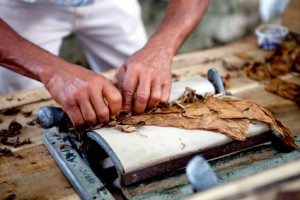 Although many know Cuba as the capital of the Cuban cigars, this culture has so much more to offer to the world – literature is one of those contributions. It is said that authentic Cuban literature may trace its history back to the late 18th to early 19th centuries, many important Cuban books and authors emerged in the 20th century.
Although many know Cuba as the capital of the Cuban cigars, this culture has so much more to offer to the world – literature is one of those contributions. It is said that authentic Cuban literature may trace its history back to the late 18th to early 19th centuries, many important Cuban books and authors emerged in the 20th century.
Alejo Carpentier (1904-1980) was born in Switzerland but spent his growing up years in Havana. He was a musicologist as well as a novelist. One of his best-known books is El reino de este mundo (The Kingdom of This World) which is set during the Haitian revolution.
Writing in the same era was Nicolas Guillen (1902-1989) one of the most important poets in Cuban history. He was noted for his artistry, especially his use of onomatopoeia, and also for being one of the first poets to write in the Afro-Cuban tradition, drawing on unique culture, music, and language in the Afro-Cuban community.
Another important 20th century novelist, essayist and screenwriter was Guillermo Cabrera Infante (1929-2005) who originally supported Fidel Castro’s regime but eventually, in the mid 1960s, went into exile in England. His most recognized novel is Tres Tristes Tigers (Three Trapped Tigers). Although he never liked the term, he was considered to be part of the so-called “boom” in Latin American writing, a time of prolific creativity that also saw the emergence of novelists like Gabriel Garcia Marquez (born 1927 and Colombian) who won the Novel Prize for Literature in 1982 for his popular novel One Hundred Years of Solitude. Marquez’s work is highly influential in magic realism, a genre that uses a combination of realistic and magical elements.
Most Cuban authors are no strangers to exile. The renaissance of sorts, in recent years, has sprung up among younger Cuban writers who find themselves expatriates. Daina Chaviano is a Cuban-American writer born in Havana in 1960, who now lives and publishes in the United States. She is considered one of the most notable women science fiction and fantasy authors that write in Spanish. Her book The Island of Eternal Love was published and translated into English in 2008. Although she cites a few Cuban authors as influences, her literary heritage draws especially on ancient mythology and Anglo-Saxon literature.
Eliseo Alberto, who just died last year, is another Cuban author who wrote from exile. Born in 1951, the son of poet Eliseo Diego, Alberto left Cuban for Mexico in 1990 during a time of persecution against writers and intellectuals. Gabriel Garcia Marquez helped him to flee, and Alberto lived out the remainder of his life and career in Mexico. One of his most important books was Caracol Beach, which won the Premio Alfaguara de Novela literary prize in the late 1990s. Many of his stories were set in Havana; following his death, his ashes were returned to that city.
Again, these are just a few of the many talented writers that claim the Cuban heritage and will continue to bring forth the many details of history and culture of this small Island and its people to the world.




